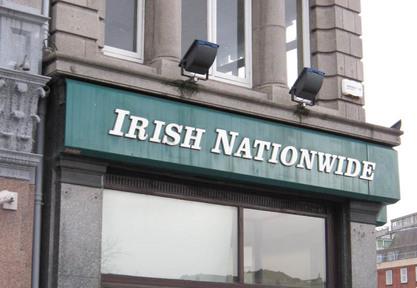Delusion of no choice is the ultimate trick

The real genius of our warped social system is the fact that the rest of us have been persuaded it all makes sense, writes Vincent Browne.
How did we devise a society in which a private, rich elite got control of the country's financial institutions, which made them spectacularly rich?
And then when the financial institutions were about to collapse, because of the recklessness of the rich elite, our democratically elected government thought it in our interests to bail out these institutions, even though doing so would impoverish our entire society while the rich, reckless servants of this elite (ie the bankers) walked off with massive pensions paid for by the rest of us?
And, incidentally, I am not talking here about Sean FitzPatrick, whose life has been ravaged by what has happened, but about the boyos in AIB, the Bank of Ireland and Irish Nationwide. And how is it that our society ordains that those who must pay for the crisis are not just the rich elite and their cheerleaders in Government, but by society generally, including those who hardly benefited at all in the good times?
Isn't there something wrong with a social arrangement which rewards some people hundreds of times more than others, not because of the social benefit they bring to society but because of a quirk in the wealth-distribution mechanism that privileges people because of their social position and/or their membership of a protected profession and/or their placement in the financial network and/or their lucky dip into the goody bag of State preferment?
And the genius of the social system that brings us these absurdities is that it brings with it devices that persuade most of the rest of us that this all makes sense: that there is no other viable social arrangement, that our democratically elected governments and politicians should collude in these mockeries of fairness and rationality; that any other arrangement has never worked anywhere else and therefore could never work; and/or that any other arrangement would bring not liberation and real democracy but, inevitably, tyranny and even more misery; that allowing people a direct say even on profound transformations in our societal arrangements is a recipe for mob rule and chaos.
That latter delusion is the ultimate triumph of the system we have bought into – that even we ourselves should have no say in the decisions on how we are to be governed and by what rules and by what standards.
For this is precisely what has happened. We, in this society, have been inflicted with the massive debts of the financial institutions controlled by a reckless, rich elite; and the consequence of this is that those who have benefited least from our bizarre social arrangements are now further impoverished; and all of us have had to surrender our sovereign entitlement to determine our own financial and social arrangements to foreign institutions, with us having no say at all in that surrender.
What is really depressing about all this is that it is apparent none of this will change with the people being given an opportunity to exercise their "democratic right" to vote in national elections. The "democratic right" extends only to deciding which of a coalition of parties is to form a new government and neither of the available options – the present crowd and the Fine Gael-Labour crowd – will make any appreciable change, no matter what the people might want.
Not that the people want anything that much different anyway for they have been persuaded by the media there is no alternative. Nobody, for instance, asked anybody involved in the EU-IMF negotiations why a further debt burden has to be heaped on us to give a further bailout to the banks.
Indeed, nobody asked why is it worse to allow banks to collapse than to allow societies to collapse or why it is worse to allow banks to be broken than to allow lives to be broken.
All the more surprising when even that bastion of the financial and business world, the Financial Times , also thinks this is bizarre. On Monday, it said in an editorial: "As Ireland can no longer ensure the solvency both of its sovereign [ie State] and of its banking system, Europe must choose between two contagion risks. Put an end to Dublin's suicidal promise to make whole its banks' senior creditors and risk a wave of bank failures. Or keep the Irish State on the hook for private losses and risk an even more virulent spread of sovereign troubles. This should be a simple, brutal choice: many banks cannot survive a sovereign default. This is a time to strengthen sovereign defences and prepare for bank restructuring [ie let the banks take the hit.]".
